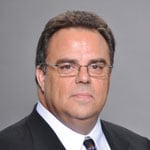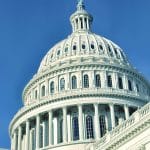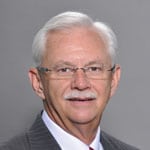![]() The UTU and the Sheet Metal Workers International Association (SMWIA), along with two other rail labor organizations, have filed a complaint with the Department of Labor’s Occupational Safety and Health Administration (OSHA), alleging BNSF has expanded its harassment and intimidation of injured workers to include the targeting of witnesses.
The UTU and the Sheet Metal Workers International Association (SMWIA), along with two other rail labor organizations, have filed a complaint with the Department of Labor’s Occupational Safety and Health Administration (OSHA), alleging BNSF has expanded its harassment and intimidation of injured workers to include the targeting of witnesses.
In recent months, OSHA has imposed millions of dollars in sanctions against railroads – including BNSF – for violating federal laws that provide protections for injured rail workers and those reporting safety violations.
The UTU and the SMWIA – now combined as the Sheet Metal, Air, Rail and Transportation Workers (SMART) — along with the International Brotherhood of Electrical Workers and the Brotherhood of Locomotive Engineers and Trainmen — filed a complaint with OSHA July 31 alleging that BNSF officials in Montana are attempting “to interfere with an OSHA investigation into possible violations of the Federal Rail Safety Act” as reported by BNSF employees.
BNSF has written to possible witnesses, asking if they would “object” to having a BNSF representative present during their interview by OSHA investigators.
“Plainly,” states the rail organizations’ complaint, “any employee receiving a communication like this, however innocently couched from the company, will be intimidated by the knowledge that the company is looking over his/her shoulder insofar as providing information to OSHA is concerned.”
The Federal Railroad Safety Act of 2007 extended whistleblower protection to employees retaliated against for reporting injuries, illnesses or safety concerns.
The complaint filed with OSHA says, “We do not know how BNSF was able to identify these employees as witnesses,” as OSHA previously rejected a BNSF demand that OSHA disclose to BNSF the names of employee witnesses. OSHA told BNSF that “such requests are wholly inappropriate and that OSHA will not comply with them.”
OSHA previously has made clear that “the safety of railroad employees depends on workers’ ability to report injuries, incidents and hazards without fear of retaliation.”
The rail labor organizations urged OSHA to “immediately contact BNSF and sternly rebuke the carrier for this inappropriate conduct. The confidentiality protections in the Federal Railroad Safety Act’s governing regulations and OSHA’s Whistleblower Investigations Manual require nothing less.”
Additionally, the rail organizations cited a June 1 OSHA letter to BNSF stating that “OSHA assumes that BNSF [legal] counsel would be well aware of the conflict of interest that would inevitably arise if BNSF’s attorney were to represent both the corporation and non-managerial employees in a whistleblower case.” The complaint says, “Apparently, BNSF did not see fit to explain that conflict of interest when approaching these employees and offering to be their ‘liaison’ with OSHA.
“No railroad employee [should be] intimidated from filing a complaint initiating an OSHA investigation or from participating in such an investigation, or in any way retaliated against by his/her employer for doing so,” said the rail organizations in their complaint.
Between 2007 and 2012, OSHA received more than 900 whistleblower complaints under the Federal Rail Safety Act.
BNSF has a history of attempting to violate federal laws protecting workers. In March, following a complaint by the UTU and the SMWIA to the Equal Employment Opportunity Commission (EEOC), BNSF rescinded a proposed new rule that would have required its employees to provide highly personal medical information.
The UTU and the SMWIA told the EEOC that the BNSF would be in violation of the Americans with Disabilities Act, the Civil Rights Act and other federal statutes by requiring employees provide the railroad with doctor’s notes, diagnostic test results and hospital discharge summaries that could disclose non-workplace injuries and illnesses. BNSF rescinded the proposed new rule prior to EEOC action.

 Public transportation funding, transportation jobs, workplace safety, Railroad Retirement and Medicare are under a mean-spirited and sustained attack by congressional conservatives who are trying to muscle their agenda through Congress prior to the November elections.
Public transportation funding, transportation jobs, workplace safety, Railroad Retirement and Medicare are under a mean-spirited and sustained attack by congressional conservatives who are trying to muscle their agenda through Congress prior to the November elections. By UTU International President Mike Futhey
By UTU International President Mike Futhey An arbitrator has ruled that a merger between the UTU and the Sheet Metal Workers International Association (SMWIA) be implemented and that the presidents of the two unions – or their designees — meet to decide how the implementation is to proceed.
An arbitrator has ruled that a merger between the UTU and the Sheet Metal Workers International Association (SMWIA) be implemented and that the presidents of the two unions – or their designees — meet to decide how the implementation is to proceed.